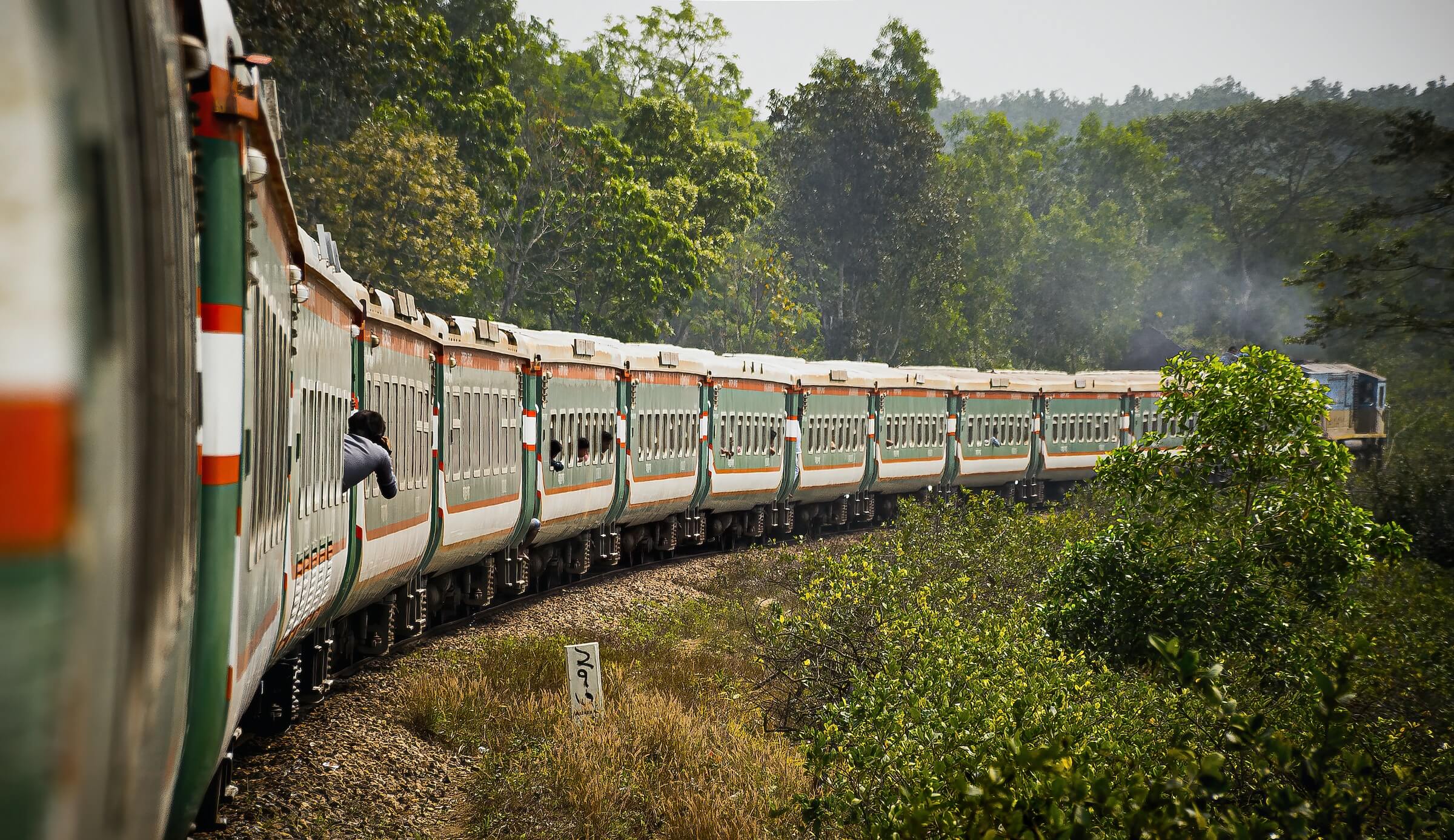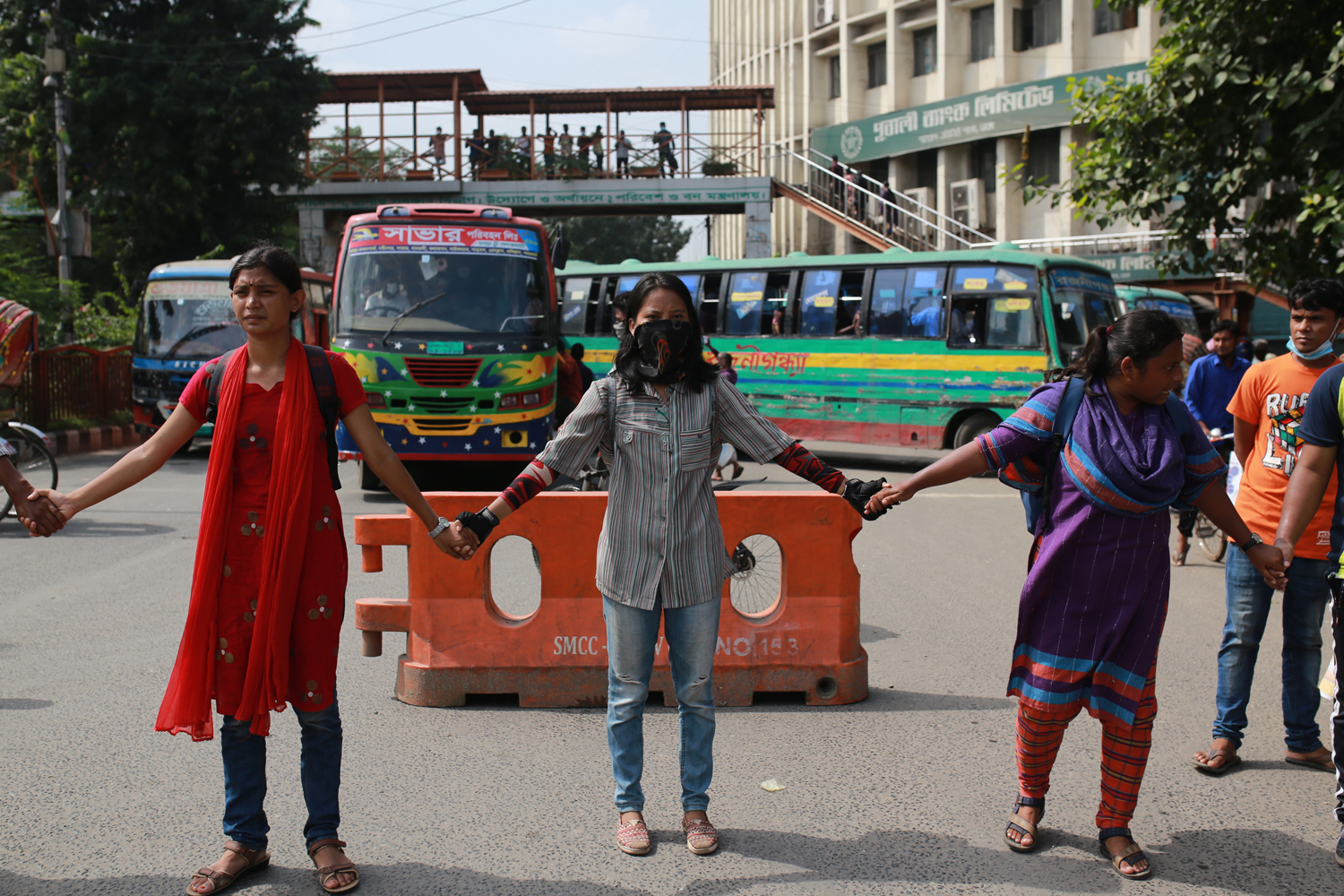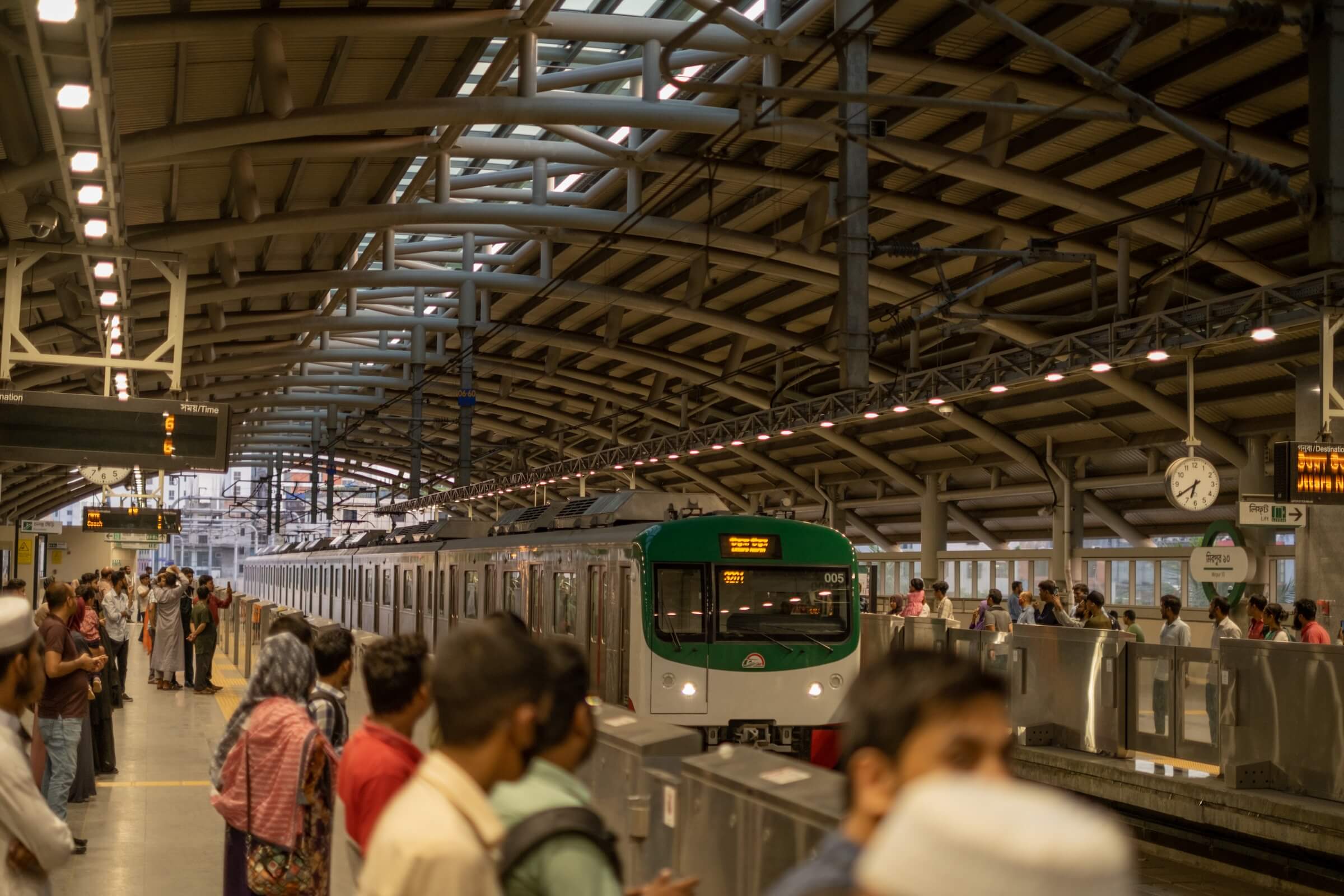You can search for courses, events, people, and anything else.
Over 90% of women who use public transport in Dhaka, Bangladesh, have experienced some form of sexual harassment during their commute. Despite this alarming figure, few studies have explored women’s experiences of sexual harassment, the effectiveness of NGO initiatives, and how women are taking action. At Western’s School of Humanities and Communication Arts, Arunima Kishore Das is trying to change that.
"In Bangladesh, there are very limited spaces for women to freely share their experiences of harassment on buses," says Megha*, a 20-year-old commuter. "If we do, we will be stigmatised."
By combining qualitative surveys and social media analysis, Das, an Associate Lecturer at Western, investigated women’s experiences of sexual harassment on public transport, their views on women’s rights and gender relations, and how they use social media to raise awareness.
"NGOs tend to portray women in Bangladesh as passive victims," says Das. "But many are using social media campaigns to try and change their situation. This isn’t being acknowledged."
In 2019, for example, Bangladeshi entrepreneur, Jeenat Jahan Nisha, launched a line of T-shirts with the slogan 'Ga Gheshe Daraben Na,' or 'Don’t Stand Too Close', to raise awareness of sexual harassment on crowded public transport. The T-shirts quickly became featured in a social media campaign, attracting both praise and criticism. Other women have established Facebook groups to raise funds for launching women-only buses in Dhaka to reduce sexual harassment cases.
Unfortunately, Das found that these social media initiatives failed to thrive in the long term, which she attributes to the lack of grassroots-level organizing or community bonds. This led to difficulty in attracting donations — making it hard to transition from social media movement to real world impact.
Das is also examining initiatives run by government organisations and NGOs to assess whether they are adequately addressing women’s issues.
"Most of the NGOs in Bangladesh are funded by Western donors with a set idea of Bangladeshi women as voiceless, oppressed and in need of rescuing," she says. "This is why when the NGOs design sexual harassment projects they take a top-down approach that satisfies donor interests. They do not attempt to empower women – they do not even ask women what they need."
She has found that many of these initiatives fail to consider how age, class, religion, education, and ethnicity shape women’s perceptions of sexual harassment and instead focus on providing statistics about sexual harassment.
"There is a huge gap in sexual harassment prevention projects that actually pay attention to women’s diverse narratives and serve their needs," says Das.
On the one hand, community or social media initiatives that are designed with women in mind, fail to attract sustainable funding, and on the other, NGO-led programmes don’t really fit the needs of the women they are trying to serve.
It’s a complex problem, but Das believes that a groundswell of collective feminist activism — with both online and offline components – might be part of a solution to help bridge the gap. "Hopefully the women who lead such initiatives would be considerate of the needs of diverse groups of women and bring them into the action," she says. "This is why grassroot-level activism is needed, not only social-media-centred initiatives and NGO-led initiatives."
Das plans to share her research findings with women commuters, NGOs, and government departments to help the groups work together to develop solutions that more effectively tackle sexual harassment on public transport. She also hopes her research will contribute to the development of safer public transport systems for women.
* Name changed for privacy
Meet the Academic | Dr Arunima Kishore Das
Dr Arunima Kishore Das is an Associate Lecture in Culture and Society at the School of Humanities and Communication Arts, Western Sydney University. Her doctoral thesis completed from the same discipline primarily documented the sexual harassment (SH) of women by critically examining women commuters’ SH narratives, NGO interventions and women activists’ contemporary autonomous digital media initiatives to address sexual harassment on public buses in the city of Dhaka, Bangladesh. Dr Das has been awarded competitive travel grants to present her research findings in several countries including the USA, England, Australia, and New Zealand. So far, she has published three peer-reviewed book chapters and two articles from her PhD thesis. Before commencing PhD, Arunima worked in research positions at a number of major national and international development organizations in Bangladesh, including the United Nations Development Program, Bangladesh and the International Centre for Diarrheal Disease Research, Bangladesh. During her PhD, she also served as a Research Assistant on an ARC Discovery project, studying Pentecostal connections in Australia and Brazil, and as a Research Officer at a gerontological research project at Western Sydney University. Her teaching and research interests include critical theorization of race, racism and multiculturalism, gendered space, migration, masculinities, gender-based violence, feminism and digital media campaigns. Arunima is also very passionate about decolonising the curriculum, and anti-racism activism.
Credit
Future-Makers is published for Western Sydney University by Nature Research Custom Media, part of Springer Nature.
© Ashique Anan Abir/unsplash
© NurPhoto/Contributor/Getty Images
© Shuvra Podder/unsplash






